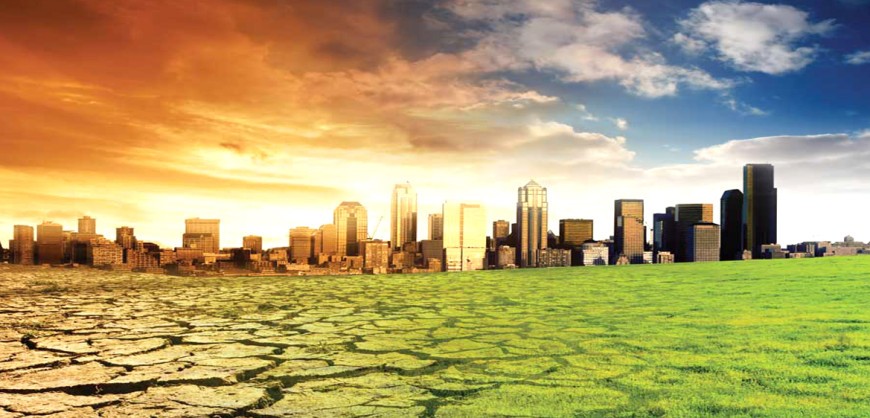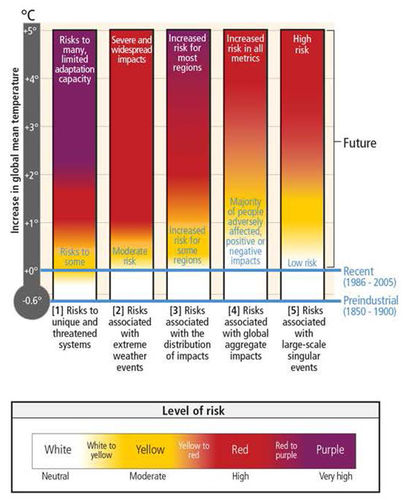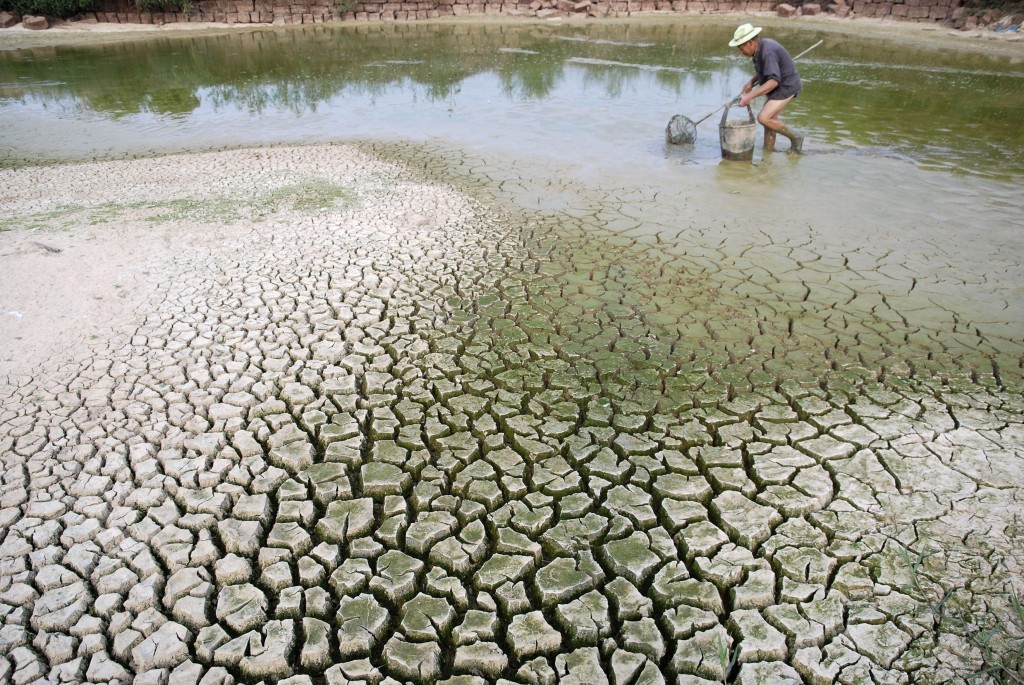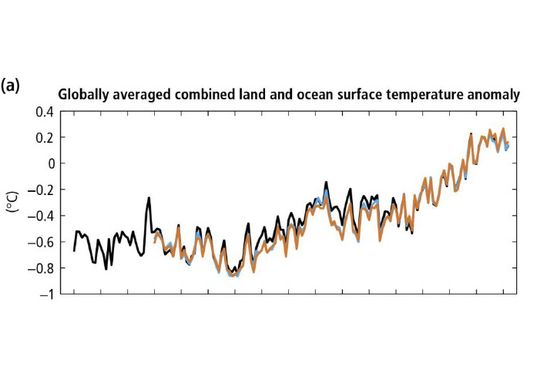A leaked 127-page draft United Nations report to be presented at the Intergovernmental Panel on Climate Change (IPCC) in Copenhagen on November 2 shows that humans are causing irreversible and widespread damage to the planet. Fossil fuel emissions are blamed for climate changed and global warming is impacting “all continents and across the oceans” raising the likelihood of “severe pervasive and irreversible impacts for people and ecosystems.”
“Without additional mitigation, and even with adaptation, warming by the end of the 21st century will lead to high to very high risk of severe, widespread, and irreversible impacts globally,” says the report.
The document summarizes hundreds of papers and presents the best scientific and economic analysis to government leaders and policymakers worldwide. IPCC Chairman Rajendra Pachauri said that the report provides “policymakers with a scientific foundation to tackle the challenge of climate change.” It is intended to help governments and other stakeholders work together to broker an international agreement to limit climate change by the end of the year.
The draft was leaked by an official who wished to be unidentified. IPCC Spokesman Jonathan Lynn declined to comment and said that the report is still “a work in progress”.
Some of its findings
* Economic losses for a warming level of 2.5 degrees Celsius (4.5 degrees Fahrenheit) above pre-industrial levels may reach 2 percent of global income
* Temperatures have warmed by 0.85 of a degree since 1880, it said. That’s quicker than the shift in the climate that brought the end of the last ice age ended about 10,000 years ago.
* Costs associated with keeping the temperature have risen since industrialization below the 2-degree target. That’s the level endorsed by the nations negotiating on a climate deal. Doing so may lead to losses in global consumption of 1.7% in 2030, 3.4% in 2050 and 4.8% in 2100.
* It is possible that the ice sheet covering Greenland would melt, boosting sea levels by as much as 7 meters (23 feet) and threatening coastal cities from Miami to Bangkok along with island nations such as the Maldives, Kiribati and Tuvalu. (A warming of less than 4 degrees Celsius which would take at least a millennium would trigger this.)
* Crops such as wheat, rice and maize in the tropics are damaged by the melting of Arctic sea ice and the acidification of the oceans.
* Surface air temperature is expected to rise with a gain of 0.3 degrees to 4.8 degrees for this century leading to a seal-level rise of 26 centimeters (10 inches) to 82 centimeters in addition to the 19 centimeters already recorded.
The report makes it clear that delayed action increases the risks and costs. Putting off the problem until 2030 may raise costs by 44% through 2050.









































